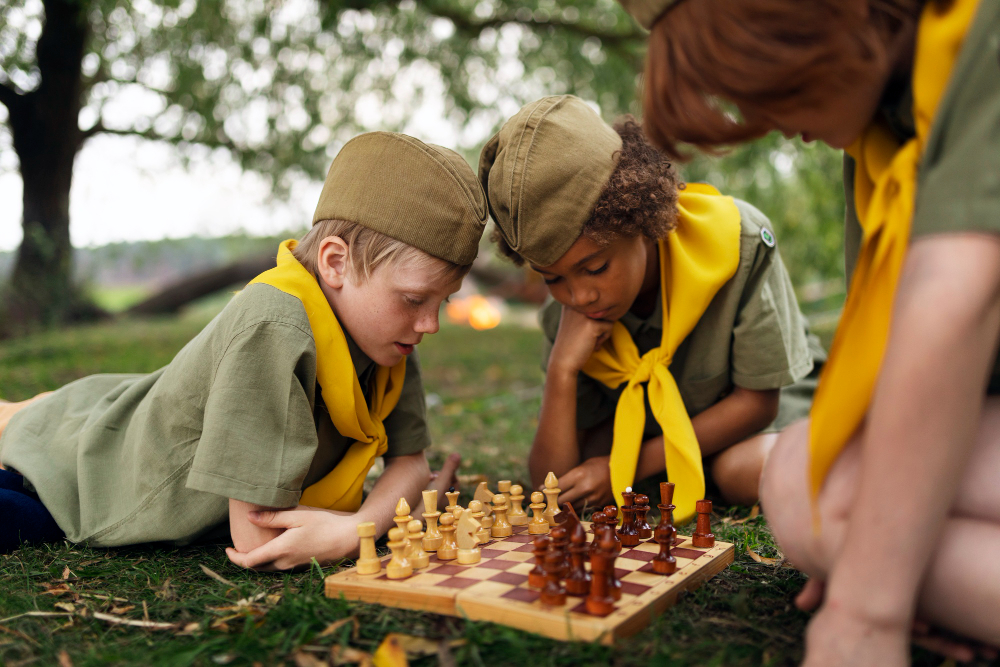Life can often feel busy and stressful, making it essential to find ways to relax and recharge. Recreational games offer the perfect balance between fun, fitness, and friendship. Whether played indoors or outdoors, individually or in groups, these games bring joy, laughter, and social connection while improving mental and physical well-being.
In this article, we’ll explore the power of play, the types of recreational games available, and how they help people of all ages stay active and connected.
The Importance of Recreation in Everyday Life
Recreation is more than just a break from work—it’s a vital part of a healthy lifestyle. Engaging in games and playful activities relieves stress, boosts creativity, and promotes overall happiness. Recreational games encourage people to move, laugh, and bond with others, creating a sense of belonging and positivity.
In today’s digital world, recreational activities help balance screen time with real-life social interaction, offering a refreshing way to reconnect with nature, family, and friends.
What Are Recreational Games?
Recreational games are leisure activities played for enjoyment, relaxation, and social interaction. They include physical, mental, and social games that don’t necessarily focus on competition but rather on participation and fun.
These games can be as simple as playing catch in the park, joining a group for volleyball, or engaging in a strategy board game indoors. The main goal is to unwind and strengthen relationships while improving physical and cognitive skills.
Benefits of Playing Recreational Games
Recreational games offer countless benefits for physical health, mental wellness, and social connection.
- Physical Health: Games that involve movement improve flexibility, endurance, and overall fitness.
- Mental Health: Fun activities reduce anxiety, elevate mood, and boost concentration.
- Social Connection: Playing with others builds teamwork, empathy, and communication skills.
- Creativity and Confidence: Games encourage self-expression and problem-solving.
- Balance and Relaxation: They provide a mental break from work or study, promoting relaxation and mindfulness.
Overall, recreational games contribute to a well-rounded and fulfilling lifestyle.
Outdoor Recreational Games
Outdoor recreational games are perfect for getting fresh air and physical exercise. They provide opportunities to interact with nature while enjoying fun activities that energize both the mind and body.
Popular outdoor recreational games include:
- Frisbee: A simple yet engaging game that improves coordination.
- Soccer: Great for teamwork and cardio fitness.
- Badminton: A light, enjoyable racquet sport suitable for all ages.
- Capture the Flag: Combines strategy and movement, ideal for group play.
- Tag Games: Fun and high-energy for children and families.
Playing outdoors boosts Vitamin D levels, strengthens muscles, and enhances mood through physical activity and sunlight exposure.
Indoor Recreational Games
When the weather doesn’t cooperate or when you prefer a cozy environment, indoor recreational games provide excellent alternatives. They stimulate the mind and encourage laughter without requiring much space or equipment.
Examples include:
- Board Games: Classics like Monopoly, Scrabble, and Ludo foster critical thinking and social bonding.
- Table Tennis: A fun, fast-paced game that improves reflexes.
- Charades: Encourages creativity and team spirit.
- Card Games: Ideal for small gatherings and family time.
- Bowling: Whether at an alley or a mini home setup, it’s enjoyable for all ages.
Indoor games offer relaxation while keeping players mentally active and socially engaged.
Recreational Games for Families
Family-based recreational games strengthen relationships and create lasting memories. These games are inclusive and suitable for multiple generations, promoting cooperation and laughter.
Some great family recreational games include:
- Hide and Seek: A timeless game that excites children and adults alike.
- Relay Races: Encourages teamwork and healthy competition.
- Pictionary: Combines drawing and guessing for hilarious results.
- Balloon Toss: Easy and fun, perfect for parties and picnics.
- Scavenger Hunts: Inspires adventure and problem-solving.
Such activities bring families closer together while improving communication and trust.
Recreational Games for the Workplace
Workplaces are recognizing the importance of recreation in boosting morale and productivity. Incorporating short, engaging games during breaks or team-building events can enhance motivation and cooperation among employees.
Popular workplace recreational games include:
- Trivia Quizzes: Promote teamwork and knowledge sharing.
- Office Chair Races: Fun and energizing break activity.
- Puzzle Challenges: Enhance creative thinking.
- Mini Ping Pong or Foosball: Encourage friendly competition.
- Team-building Exercises: Build trust and collaboration.
When employees engage in recreational games, stress levels drop, communication improves, and workplace satisfaction rises.
Recreational Games for Mental Wellness
Recreational games are not only about physical activity—they play a major role in maintaining mental health. They stimulate cognitive function, creativity, and emotional resilience.
Examples of games that enhance mental well-being include
- Chess: Strengthens focus and problem-solving.
- Sudoku and Crosswords: Improve memory and reasoning skills.
- Jigsaw Puzzles: Encourage patience and attention to detail.
- Word Games: Boost vocabulary and critical thinking.
- Meditative Games: Activities like yoga-based movement games promote mindfulness.
By engaging the brain in fun and stimulating ways, these games help combat stress, anxiety, and mental fatigue.
How Recreational Games Build Social Bonds
Humans are naturally social beings, and games have always been a tool for connection. Recreational games foster friendship, understanding, and teamwork by encouraging interaction and shared experiences.
Group games promote inclusivity, teach fair play, and help people appreciate diverse perspectives. Whether it’s children learning cooperation or adults building community ties, recreational games strengthen social relationships and encourage empathy.
Tips for Incorporating Recreational Games into Daily Life
It’s easy to add more play into your routine with a few simple adjustments:
- Set Aside Play Time: Dedicate at least 30 minutes a few times a week to recreational activities.
- Mix Physical and Mental Games: Balance active sports with strategy games.
- Include Family and Friends: Turn playtime into a social event.
- Use Breaks Wisely: Incorporate short games during work or study intervals.
- Stay Consistent: Make recreation a regular part of your lifestyle rather than an occasional activity.
By integrating play into daily life, you’ll find yourself more relaxed, connected, and energized.
Conclusion
Recreational games are a joyful way to maintain balance in a busy world. They combine the best of physical activity, mental stimulation, and social connection. From outdoor adventures to indoor board games, each experience promotes health, happiness, and a sense of togetherness.
Incorporating recreational games into your daily routine is not just about fun—it’s about building a stronger, more vibrant life. So, gather your family, friends, or colleagues, and rediscover the power of play. With recreational games, relaxation and connection go hand in hand.
FAQs
1. What are recreational games?
Recreational games are activities played for enjoyment and relaxation rather than competition. They can be physical, mental, or social and are designed to promote fun, health, and connection.
2. Why are recreational games important?
They reduce stress, encourage physical fitness, improve cognitive function, and help people connect socially. Regular recreation leads to better mental and emotional well-being.
3. Can adults benefit from recreational games?
Absolutely. Adults benefit from play as much as children. Games provide relaxation, mental stimulation, and opportunities for social interaction, helping to manage stress and maintain work-life balance.
4. What are some examples of indoor recreational games?
Popular indoor games include chess, Scrabble, table tennis, charades, and card games. These are ideal for family gatherings, office breaks, or social events.
5. How can I make recreational games part of my lifestyle?
Start by scheduling regular game time, joining a recreational club, or organizing small game nights with friends and family. Even short, fun breaks during the day can make a big difference.
Also read: 7 Quick Steps to Solve It Fast: Some Backyard Parties for Short NYT Crossword Answer



Leave a Comment